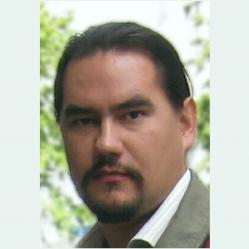Information about the seminar
- Trainer
-
- Time frame
- -
- Seminar type
- Online Seminar
- Seminar language
- English
- Early Bird
- 315.00€
- Fee (tax-exempt)
- 350.00€

Content
Designing, initiating and accompanying communication processes among the different parties of a conflict is one of the core elements of peace work. These processes demand a profound understanding of the situation, an empathetic and multi-partial attitude towards the parties and a comprehensive set of communication skills. This seminar focuses on the role of the peace worker as a third party in a conflict and explores the attitude, skills, knowledge and tools necessary for accompanying dialogue processes.
Paying special attention to all key elements of a congruent facilitation style participants will learn about the necessary components needed in designing and implementing dialogue processes. From the creation of a safe space with each of the parties involved to the structural requirements of a dialogue, going through the clarification of roles and objectives, this seminar seeks to increase awareness regarding the big picture of dialogue process design and all the small, yet crucial elements that maximise the chances for a successful dialogue process.
Objectives
- Locating dialogue within the definitions of key conflict handling mechanisms, including use of force, court, arbitration, negotiation, mediation and dialogue, the appropriateness of each in relation to situation and interrelationships between them.
- Understanding how dialogue processes develop from preparation to implementation to supporting the generation of practical outcomes that impact on the broader peace / conflict transformation process.
- Acquiring the necessary skills for the practical design of dialogue processes, including identification of needs for dialogue from a multi-track context analysis, preparation steps and support mechanisms.
- Understanding how to create safe, secure, fair and equitable spaces for dialogue – the role of preparation, facilitation, location, arrangement of physical space, agenda setting, dealing with individual and group power relations, jointly developing rules and out-of-session activities.
- Understanding of the implications of different styles, tools and roles of facilitation on the dialogue process e.g. use of voice tone, directive vs elicitive, formal vs informal.
Key Concepts
- Communication and dialogue processes
- Multi-track approach and multi-partial attitude
- Safe spaces
- Facilitation role and styles
- Elements of a dialogue
Methodology
The training will use critical pedagogy as one of the core theories and translate it into practice using interactive methodology. Thus, the curriculum can be built around the following elements:
- participants share their personal experiences regarding the topic(s) being addressed in a particular session;
- participants reflect on what they learned individually and what the group can learn together from those experiences;
- participants contextualize, using theoretical input and trainer’s applied experience how those lessons learned connect to their actual and future work and the reality in which they (will) live and work in the field; and
- participants act on that knowledge – improve knowledge, skill set and develop personal qualities, and then implement these into future experiences.
-
The referenced media source is missing and needs to be re-embedded.
Workload
Online Live Sessions: From March 17 to May 5, 2021. Every Wednesday from 14:00 to 15:30 CET / CEST
Deliverables: attending weekly live sessions; completing different weekly tasks on the study material and personal case study.
Total expected weekly hours: 4 – 6 hours.
